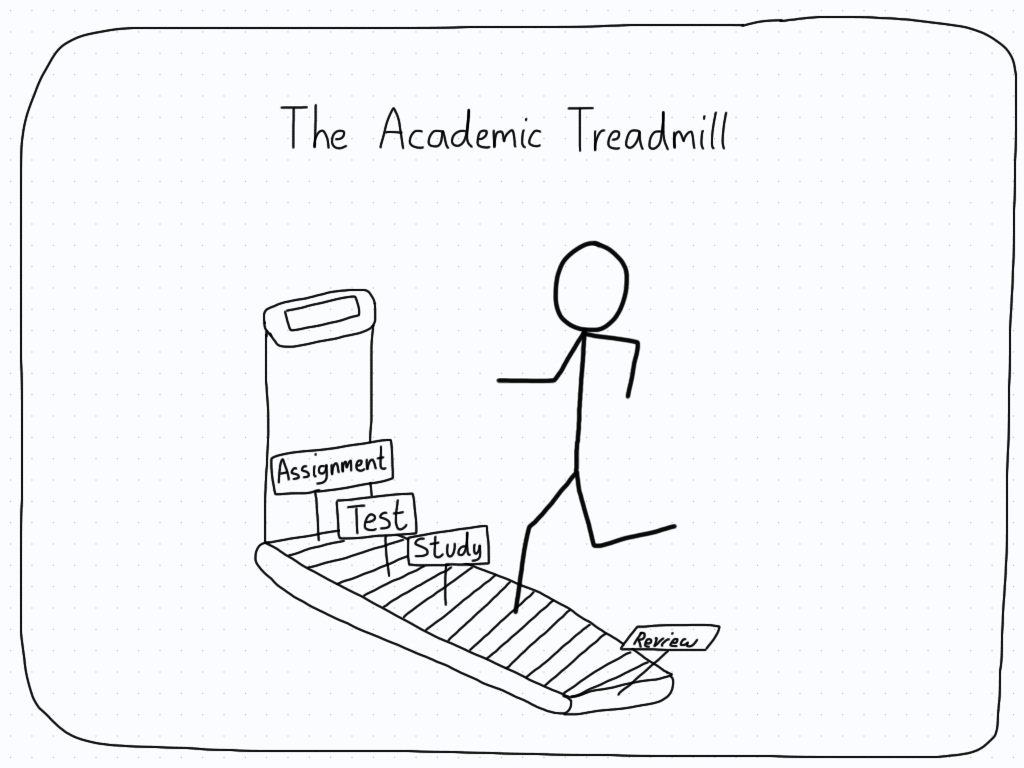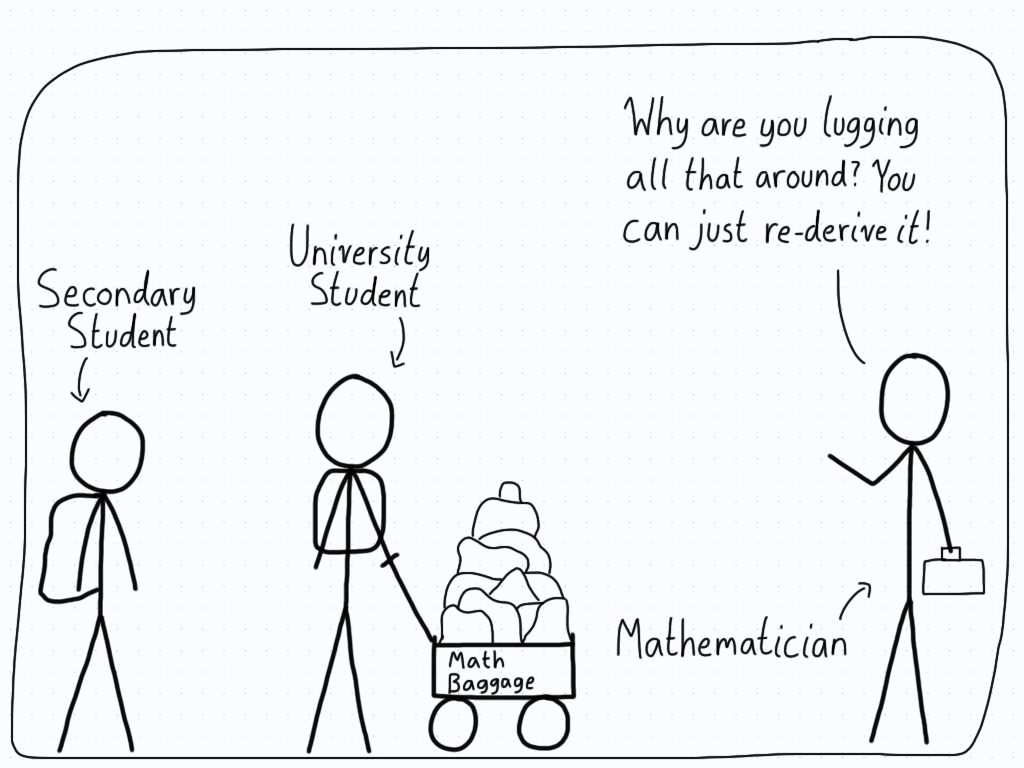 Comics about mathematics, science, and the student life.
Comics about mathematics, science, and the student life.
Academic Wishlist

I think the probability of any of these happening is the limit of 1/n as n goes to infinity.
24 Dec 2018Scheming

I just love when I have a whole week of nothing (in which I could have done work!) and then this happens.
21 Dec 2018To Read

After a while, it becomes painful to look at them and be reminded of the number of books I have to read.
17 Dec 2018Academic Treadmill

It’s the end of the semester, so you’ve earned a small break before you hop back on!
14 Dec 2018Minimal Assumptions

“What if you’re in the middle of an exam and don’t have time to re-derive it?”
“Ah, well that’s easy stuff. You shouldn’t forget about that!”
12 Dec 2018More To Do

This is a problem all through academia. I strongly suggest a hobby (like drawing a webcomic) if you find yourself in this situation.
10 Dec 2018Author Long Jump

“To get to the last equality, the steps should be obvious. If they aren’t, please close this book and find something easier to read.”
05 Dec 2018

